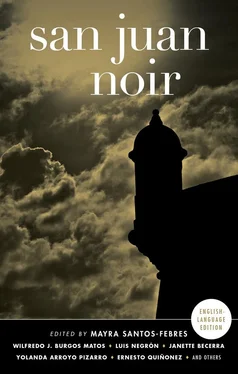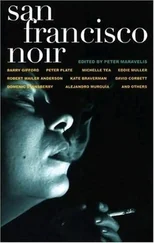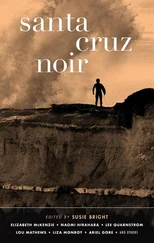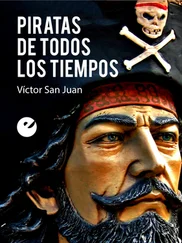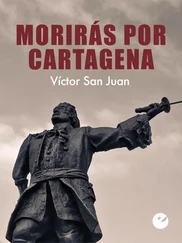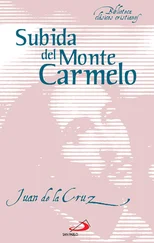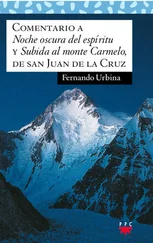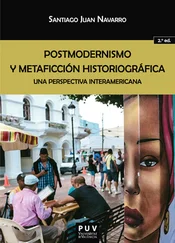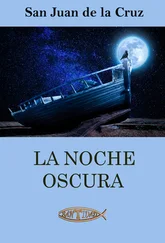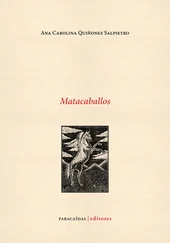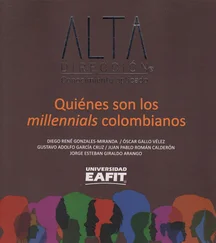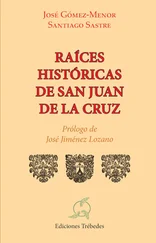Ernesto Quiñonez - San Juan Noir
Здесь есть возможность читать онлайн «Ernesto Quiñonez - San Juan Noir» весь текст электронной книги совершенно бесплатно (целиком полную версию без сокращений). В некоторых случаях можно слушать аудио, скачать через торрент в формате fb2 и присутствует краткое содержание. Город: New York, Год выпуска: 2016, ISBN: 2016, Издательство: Akashic Books, Жанр: Детектив, на английском языке. Описание произведения, (предисловие) а так же отзывы посетителей доступны на портале библиотеки ЛибКат.
- Название:San Juan Noir
- Автор:
- Издательство:Akashic Books
- Жанр:
- Год:2016
- Город:New York
- ISBN:978-1-61775-296-4
- Рейтинг книги:3 / 5. Голосов: 1
-
Избранное:Добавить в избранное
- Отзывы:
-
Ваша оценка:
- 60
- 1
- 2
- 3
- 4
- 5
San Juan Noir: краткое содержание, описание и аннотация
Предлагаем к чтению аннотацию, описание, краткое содержание или предисловие (зависит от того, что написал сам автор книги «San Juan Noir»). Если вы не нашли необходимую информацию о книге — напишите в комментариях, мы постараемся отыскать её.
San Juan Noir — читать онлайн бесплатно полную книгу (весь текст) целиком
Ниже представлен текст книги, разбитый по страницам. Система сохранения места последней прочитанной страницы, позволяет с удобством читать онлайн бесплатно книгу «San Juan Noir», без необходимости каждый раз заново искать на чём Вы остановились. Поставьте закладку, и сможете в любой момент перейти на страницу, на которой закончили чтение.
Интервал:
Закладка:
Over the nine days of the novena celebration, you’ve gained the confidence of Violeta’s older sister. That is the dead girl’s name: Violeta. You go to the movies, you eat lunch in the Plaza Food Court, you even go to the General Police Station to give testimony regarding one of the suspects. When the detective in charge of the investigation interrogates you, you tell him about your concerns regarding the participation of the lesbian lover in that horrific crime. You insist on the strangeness of that supposed friend who’s now disappeared. And with great skill you delineate your hypothesis of the amputated hands. From your perspective — that of a man dedicated to collecting stamps, baseball cards, and memorabilia about The Divine Comedy — severed hands represent the feminine genitalia. You explain how gay women use their hands to give and receive pleasure: the fingertips and fingernails to tease; the palm to rub; the stem of the extremity to caress; two, three, and even four fingers to penetrate; a brush of knuckles in obvious seduction; inserting a full fist in clear domination; the end. That’s why the dead girl Violeta was killed, you say. Her lesbian lover — when she found out Violeta wouldn’t get a divorce, and that she also very possibly had another male lover — went crazy. Violeta, the best friend from high school, inseparable even after college, deep down wanted to end that affair, but the other girl’s rage wouldn’t allow it. She’d rather kill her than not have her for herself.
5.
So when, three days later, the paper publishes the news that Violeta’s widower has turned himself in to the authorities, you don’t give it any credibility. You’re unconvinced that the grief-stricken husband had it in him to cut off her hands, despite the sensationalistic details: he hit her when he drank, cut her with kitchen knives, with scissors, skewered her with screwdrivers — and one night, she hit back. She got tired of it. Defending herself cost her her life.
You look at the photos from your digital camera that you’ve already had developed and printed. You decorate several walls of your temporary home. The lagoon, the mangrove, the rescue boat, the body.
Found bodies make silent speeches. The demise of that human being is fully explained by the exposed sequence of details of that found body. All that’s missing is the translator, who reveals the linguistic code and explains it. You feel that you are the translator. Will there be signs of lost love, of diminished feeling, in the energy surrounding a lifeless body?
You stop seeing her sister because you intuit that her whole family is a fiasco, a string of deceitful blacks, blacker than you. What an evil thing to lie to the citizenry about a crime, just to have it cleared up. You’re convinced the husband is innocent. So in the end, Violeta’s death was well deserved.
Her pathetic sister, melodramatic and blubbering, is just like your few remaining family members. Your grandma — thank God she’s six feet under — was right: one can never trust a madamo.
Part III
Never Trust Desire
Turistas
by Ernesto Quiñonez
For Edward Rivera
Dos Hermanos Bridge
I came to San Juan because Mama said my father, a certain Salvador Agron, lived here. “Remember, Julio, only ask of him what is due to us. What he never gave us.” Mama was leaving this world, and with a sense of urgency she passed on the family inheritance by handing me the envelope. I never put much stock into it. But I loved Mama, and so I promised to find my father.
I was staying at the Sheraton Puerto Rico Hotel & Casino, and in the afternoon I went looking for him. Scaling up hills covered with multicolored colonial houses, cobblestone streets, and tons of tourists, most from cruise ships docked by the Malecón. The only pictures I had of my father were from when he was a teenager, when he acquired his famous name.
I spotted three old men sitting outside, drinking coffee by a café.
“Have any of you seen an old man named Salvador Argon, also known as the Capeman?” I asked in Spanish.
“You came to San Juan looking for an old man?” one of them answered in Spanish. “The whole town is old.” And they laughed together.
I continued walking. The humidity never bothered me. I expected to find him in some corner drunk and lost. I walked all around Old San Juan. Lit a candle for Mama at the cathedral. The cult of Mary is not in my bones.
Exhausted, I gave up as night was approaching. I took a taxi back to the Sheraton.
I replayed this search the next day with no luck.
On the third day he rose from the dead; I received the call. It was a female voice, speaking in English.
“You are looking for the Capeman?”
“Yes,” I said anxiously.
“Why?”
“Who is this?” I asked.
“Meet me tomorrow at the San Juan Gates, where the fishermen are.” And she hung up.
Whoever she was, she knew him by his famous name. So she knew what he had done.
My father was born in Mayagüez and had been shuffled from the island to New York City by his parents as many times as he would later be shuffled from juvenile detention to juvenile detention, from prisons to asylums and back to prisons.
He came from a time when the New York City streets belonged to teenage gangs. My father was president of the Vampires. Like many members, he had dropped out of school, left his mother, and then rented a five-dollar-a-week single-room occupancy on the Upper West Side.
The night of the playground incident was a Saturday. All over the West Side of New York City, from the 100s down to the 60s, the large population of Puerto Ricans who lived there before gentrification, before the cleaning up of Needle Park, were taking in the street life. Radios blasting salsa. Everyone looking for someone to love and be loved in return. Everyone cooling off from a summer heat wave.
It was around nine o’clock when word arrived that some kids from a white gang named the Norsemen had beaten up a Puerto Rican member of the Vampires. As president of the gang, my father called up all the Puerto Rican members and told them to meet at the playground on 46th Street and Ninth Avenue. Some came walking. Others took the bus. My father jumped the turnstiles, hopped on the 1 train, got off at 42nd Street, and walked west. He was a Vampire and so he wore a cape. In his hands a dagger, along with years of anger, betrayal, abuse — a wealth of tragedies from his young life just waiting for a reason to be set free. When my father and his Vampires assembled at the playground it was midnight. The lampposts were broken. Hanging out by the swings were these two white boys. It was a moonless New York neighborhood known back then as Hell’s Kitchen.
“Hey, no gringos in this playground!” my father yelled. The two white boys ran but my father and his Vampires chased and fell on them. My father tackled one of the boys, threw him down on the pavement, and started screaming at his face: “This is our playground. No Norsemen! No white Norsemen!” My father wielded his dagger. Began stabbing the white boy and then the other boy... but these were not the Norsemen. They were just white kids hanging out.
Bleeding a river of red, the first white boy made it to the entrance of a tenement building. He knocked on the door of some old lady. She quickly recognized him as a boy from the neighborhood. The old lady kneeled down and held the bloodied boy in her arms as if she wanted to give him what was left of her own life. He in turn looked up at her eyes and tried to say something but died in her arms.
The other white boy made it to his nearby tenement. He managed to drag himself up a flight of stairs and to his apartment. His mother opened the door and saw her bloodied son coughing like a broken radiator. She held her son as he died in the hallway.
Читать дальшеИнтервал:
Закладка:
Похожие книги на «San Juan Noir»
Представляем Вашему вниманию похожие книги на «San Juan Noir» списком для выбора. Мы отобрали схожую по названию и смыслу литературу в надежде предоставить читателям больше вариантов отыскать новые, интересные, ещё непрочитанные произведения.
Обсуждение, отзывы о книге «San Juan Noir» и просто собственные мнения читателей. Оставьте ваши комментарии, напишите, что Вы думаете о произведении, его смысле или главных героях. Укажите что конкретно понравилось, а что нет, и почему Вы так считаете.
